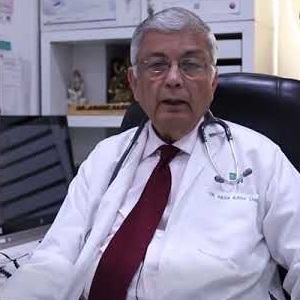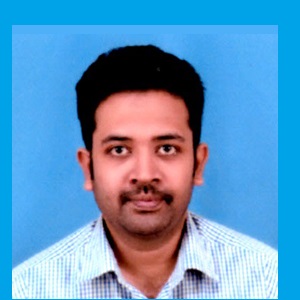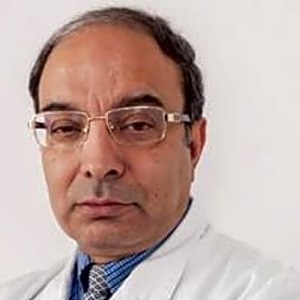Best Doctors in India for Peritoneal Dialysis
- Nephrologist, Gurugram, India
- Over 25 years’ experience
Profile Highlights:
- Dr. Lakshmi Kant Tripathi throughout his career has supervised around 54000 hemodialyses at different centers in Delhi NCR, with great clinical outcomes.
- He is successfully engaged in kidney transplantations, including Incompatible & High-risk ones. He is a specialist in managing Resistant hypertension, difficult-to-treat Nephrotic Syndromes, Complicated UTIs & high-risk Transplants.
- Nephrologist, Gurugram, India
- Over 40 years’ experience
Profile Highlights:
- Dr. Manju Aggarwal is one of the leading nephrologists in India and has many years of experience in Nephrology at some of the best medical institutions including the University of Minnesota.
- She has expertise in treating critically ill patients with acute and chronic renal failure and those on dialysis and renal transplant.
- Dr. Aggarwal is also experienced in managing difficult and high-risk renal transplants, especially for those who need desensitization.
- Nephrologist, New Delhi, India
- Over 22 years’ experience
Profile Highlights:
- With over 22 years of experience, Dr. Saurabh Pokhriyal is currently associated with Manipal Hospitals in Dwarka, Delhi. Known for his skill in Nephrology and Renal Transplant Medicine, Dr. Saurabh Pokhriyal has a distinct fascination with complex cases of nephrology as well as in performing ABO-contrary transplants.
- He has worked additionally for the Primary treatment of Glomerular Diseases. Dr. Pokhriyal has also authored several articles that have been distributed in different national as well as international chapters and books.
- Nephrologist, New Delhi, India
- Over 45 years’ experience
Profile Highlights:
- Dr. Ashok Sarin is a specialist in Kidney Diseases, Dialysis, and Transplantation. He is currently working at Indraprastha Apollo Hospital, Sarita Vihar, New Delhi.
- After receiving his education at the All India Institute of Medical Sciences, New Delhi, Dr. Ashok Sarin proceeded to Northern Ireland U.K. where he received training under Dr. Mary Mcgeown at the prestigious Belfast City and Royal Victoria Hospital Queens University of Belfast U.K. He is known to receive World Class Training in treating all types of Kidney Diseases, Hemodialysis, CAPD, and Live and Cadaver Kidney Transplantation.
- He is a member of several associations such as the Indian Society of Nephrology, Delhi Nephrology Society, North Zone Society of India, as well as the Association of Physicians of India. He is also the President of the Delhi Nephrology Society.
- Nephrologist, Gurugram, India
- Over 18 years’ experience
Profile Highlights:
- Currently working as Associate Director, Nephrology at Medanta, Gurugram; Dr. Jha has several years of rich experience in his field.
- His area of expertise is renal transplantation, hemodialysis, chronic kidney diseases, and acute kidney injury. Throughout his career, he has treated thousands of patients from all over the country and also provides his patients with the best medical care.
- Dr. Jha completed DNB Nephrology from Manipal Hospital; Bengaluru in 2011. He has wide experience in pre as well as post-transplant care.
- Nephrologist, New Delhi, India
- Over 30 years’ experience
Profile Highlights:
- Dr. Alka Bhasin is a General Physician as well as a Nephrologist and a Renal Specialist, based in Saket, New Delhi. She completed her Fellowship in Nephrology from Thomas Jefferson University Hospital in 2000.
- Some of the services provided by Dr. Alka Bhasin include Hemodiafiltration (HDF), Kidney Transplant, Renal Angioplasty & Stenting, Laparoscopic Nephrectomy, Hemodialysis, etc.
- Nephrologist, Chennai, India
- Over 14 years’ experience
Profile Highlights:
- Dr. Jagdish K is currently designated as the Senior Consultant of Nephrology with a vast experience of 14 years.
- Dr. Jagdish K is well versed in Temporary Haemodialysis Catheters, Bone Marrow Aspiration and Biopsy, Lumbar Puncture, Arterial Lines, and Renal Biopsy.
- His special interests lie in Glomerulonephritis, Extracorporeal treatments, Post-Transplant Infections, and Renal Transplants across blood groups and in highly sensitized individuals.
- Nephrologist, New Delhi, India
- Over 20 years’ experience
Profile Highlights:
- Dr. Rahul Grover is known to be one of the finest renal doctors and nephrologists in New Delhi. He offers excellent care to all his patients.
- He holds an experience of several years and has extensive knowledge in the field of medicine.
- He is also an esteemed member of the Indian Society of Nephrology (ISN), and the Indian Society of Organ Transplantation (ISOT), and this further adds to his credibility.
- Nephrologist, Gurugram, India
- Over 15 years’ experience
Profile Highlights:
- Known as one of the best nephrologists in the NCR region, Dr. Manish Jain holds a special interest in renal transplants as well as clinical nephrology.
- His compassionate patient care and lifestyle advocacy have helped patients recover from various disorders.
- Throughout his career, Dr. Manish Jain has published several papers in India and is also a member of several medical associations.
- Nephrologist, Gurugram, India
- Over 31 years’ experience
Profile Highlights:
- Dr. Vijay Kher is a well-known nephrologist with over 31 years of experience. He did his MBBS from Glancy Medical College, Amritsar. He completed his DNB – General Medicine from the Postgraduate Institute of Medical Education and Research, Chandigarh in 1977.
- Some of the services provided by Dr. Kher are ABO Incompatible Transplantation, Steroid Free Immunosuppression, Clinical Immunosuppression, Kidney Disease Treatment Acute Renal Failure, etc.
Best Hospitals in India for Peritoneal Dialysis
Fortis Hiranandani Hospital, Mumbai
- City: Mumbai, India
Hospital Highlights:
- Fortis Hiranandani hospital was established in 2007.
- The hospital is an advanced tertiary care, multi-specialty hospital equipped with 149 beds.
- The hospital is equipped with a super ICU to provide emergency medical care to critically ill patients.
- The hospital is NABH accredited.
- The critical care facility in the hospital is augmented with the state-of-the-art facilities that facilitate speedier diagnosis and efficient monitoring.
- The hospital provides specialty medical services in cardiology, orthopedic science, pediatric science, neurology, diabetic care, urology, nephrology, ENT, obstetrics, gynecology, cosmetic surgery, bariatric surgery, neuro and spine care.
Fortis Hospital, Anandpur, Kolkata
- City: Kolkata, India
Hospital Highlights:
- Fortis Hospital, Anandapur, Kolkata is a world-class super-speciality equipped with the latest technologies in the medical world.
- The hospital is NABH accredited.
- This state-of-the-art facility specializes in cardiology and cardiac surgery, urology, nephrology, neurosciences, orthopaedics, digestive care, emergency care and critical care.
- The hospital, governed by integrated Building Management System (IBMS), has a pneumatic chute system, for quick vertical and horizontal transportation between floors, facilitating speedy transfer of patient specimens, documents, reports, and medicines to the concerned departments.
- The hospital also has a nephrology department with over 28 advanced dialysis units.
Fortis Hospital Banerghatta, Bengaluru
- City: Bengaluru, India
Hospital Highlights:
- Fortis Hospital Bannerghatta, Bengaluru was established in 2006.
- The hospital is a 276 bedded multi-specialty tertiary care facility.
- The hospital specializes in cutting-edge medical technology and dedicated patient care services.
- The hospital is equipped with state-of-the-art technologies like trans-radial angioplasty, trans-abdominal cardiac surgery, and computerized TKR navigation surgery.
- The hospital provides specialty medical services in cardiology, cardiac surgery, orthopedics, neurology, neuro-surgery, GI, and Minimal Access Surgery (MAS).
Fortis Hospital, Malar, Chennai
- City: Chennai, India
Hospital Highlights:
- Fortis Malar was established in 1992 and was formerly known as Malar Hospital.
- The hospital specializes in cutting-edge medical technology and dedicated patient care services.
- The hospital is multi-specialty, tertiary care facility with 180 beds.
- The hospital offers comprehensive medical care in specialties such as cardiology, cardio-thoracic surgery, neurology, neurosurgery, orthopedics, nephrology, gynecology, gastroenterology, urology, pediatrics, and diabetes.
Gleneagles Global Hospital, Parel, Mumbai
- City: Mumbai, India
Hospital Highlights:
- Gleneagles Global Hospital The 450-bed facility comprises of 17-stories, housing state-of-the-art infrastructure, and advanced medical care facilities.
- The hospital offers end-to-end clinical, surgical, and diagnostic services. It is equipped with a team of eminent medical professionals aided by qualified nurses and medical staff
- The Hospital offers advanced Endoscopic procedures, Hepatobiliary and Liver Surgeries, Surgical and Medical Gastroenterology, Bariatric Surgery, and Robotic surgery.
- The hospital is a center of excellence for Orthopedics, Joint Replacement, Knee Replacement, and Hip Replacement surgery.
Manipal Hospital, Dwarka, Delhi
- City: New Delhi, India
Hospital Highlights:
- Manipal Hospitals, Dwarka, is a super-specialty hospital in Dwarka, New Delhi, which is a part of Manipal Hospitals Group.
- The hospital aims to provide the best treatment on par with international standards at a fraction of the cost.
- Equipped with 380 beds, the hospital is also one of the new age hospitals which are equipped fully with state-of-the-art infrastructure, cutting-edge technology as well as the latest and advanced clinical practices. The hospital also has 13 modular Operation theatres with 118 beds which are solely meant for critical care.
- The hospital comprises internationally acclaimed doctors and highly professional and experienced hospital and medical staff who are able to provide preventive, therapeutic, and diagnostic services all under one roof.
Paras Hospital, Gurugram
- City: Gurugram, India
Hospital Highlights:
- Paras hospital was established in 2006 and is the 250 bedded flagship hospital of Paras Healthcare.
- The is supported by a team of doctors of international and national repute.
- The hospital is NABH accredited and also the first hospital in the region to have a NABL accredited laboratory.
- The hospital provides specialty medical services in around 55 departments including Neurosciences, Joint Replacement, Mother & Child Care, Minimal Invasive Surgery, Gynecology and Obstetrics, Ophthalmology, Dermatology, Endocrinology, Rheumatology, Cosmetic and Plastic surgery.
- The hospital is equipped with state-of-the-art technologies.
S L Raheja Hospital, Mahim, Mumbai
- City: Mumbai, India
Hospital Highlights:
- SL Raheja hospital is a 140-bed multi-specialty tertiary care hospital that is being managed by Fortis Healthcare Ltd.
- The hospital is a benchmark in healthcare and medical facilities in the neighborhood of Mahim & the western suburbs.
- L.Raheja Hospital, Mahim has one of the most effective ICU and Casualty care services.
- The hospital provides specialty medical services in Cardiology, Oncology, Neurology, Orthopedics, Mother & Child Care, and in Diabetes.
Wockhardt Hospitals, Mumbai
- City: Mumbai, India
Hospital Highlights:
- Wockhardt Hospitals were established in the year 1973, originally called First Hospitals and Heart Institute.
- Wockhardt Hospitals are super specialty health care networks in India, nurtured by Wockhardt Ltd, India’s 5th largest Pharmaceutical and Healthcare company.
- Wockhardt Hospitals is associated with Partners Harvard Medical International, an international arm of Harvard Medical School, USA.
- Wockhardt Heart Hospital performed India’s first endoscopic heart surgery.
- The hospital has a state-of-the-art infrastructure equipped with the latest technologies and modern equipment.
- It has special Centers of Excellence dedicated to the major specialties to provide hassle-free and high-quality clinical care.
Pushpawati Singhania Hospital & Research Institute, New Delhi
- City: New Delhi, India
Hospital Highlights:
- Established in 1996, Pushpawati Singhania Research Institute is one of the top hospitals in the NCR region, as well as one of the top facilities in India for gastroenterology. The hospital is one of South Asia’s first institutes in medical and surgical treatment for diseases related to digestion.
- The hospital is equipped with state-of-the art facilities coupled with the latest equipment as well as renowned consultants from various parts of India as well as other parts of the world.
Peritoneal Dialysis
Peritoneal Dialysis is a procedure for the removal of waste products from the blood when the kidneys fail to function properly. The procedure allows filtering the blood in a way different than the hemodialysis or blood-filtering procedure.
During this procedure, a cleansing fluid will flow through the catheter (a tube) into a part of the abdomen. The peritoneum (lining of the abdomen) will act as a filter to remove all the waste products from your blood.
After a certain time, the fluid along with the filtered waste products will flow out from your abdomen. The doctor will discard this fluid. Although you can do these treatments at home or even during traveling, it is not the right option for everyone having kidney failure.
Why do I need to undergo this procedure?
You need to go for this procedure if your kidneys are not functioning properly any longer. Damage to the kidneys usually advances due to long-term conditions over the years. These conditions may be:
- High blood pressure
- Polycystic kidney disease (a disease in which there are multiple cysts in the kidneys)
- Diabetes
- Glomerulonephritis or inflammation of the kidneys
Although both- Peritoneal Dialysis and hemodialysis can filter your blood in an effective way, Peritoneal dialysis has far-fetching benefits.
- It allows lifestyle flexibility as you can perform dialysis anywhere. If you are working, traveling, or are at a place that is far from the hemodialysis center, you can perform Peritoneal Dialysis easily.
- There is less accumulation of fluids, potassium, and sodium as you need to do this dialysis more continuously. Ultimately, you can have a diet more flexible than the diet during hemodialysis.
- It allows you to retain kidney functions longer than hemodialysis.
You might consider certain factors to decide which type of dialysis is good for you. These factors must include your overall health, your home environment, your kidney function, your lifestyle, and your personal choices. The peritoneal procedure is the right option for you if you have some kidney function, want to minimize disturbance to your daily activities, want flexibility in working or traveling, and are intolerant to rapid changes in a fluid balance that associates with hemodialysis.
How to prepare?
You might need to undergo an operation for the insertion of the tube carrying dialysate in your abdomen. Your doctor will insert this tube after administering local or general anesthesia to you. The insertion of the tube will be near your belly button. After the insertion of the tube, your doctor will suggest you wait for a month before starting the treatment of Peritoneal Dialysis so that the site of insertion of the catheter will heal with time.
What to expect?
The dialysate will flow into your abdomen during the procedure and will be there for around 6 hours. This is the dwell time of the dialysate. The dextrose present in it helps to filter the chemicals, waste, and fluids present in your blood from the blood vessels of your abdominal cavity lining. The solution containing the waste products drawn from the blood will be drained into the collection bag after the dwell time gets over. This entire process of filling & draining is known as an exchange. The schedule of exchange varies for each method of Peritoneal Dialysis which are:
Continuous ambulatory peritoneal dialysis
In this, your abdomen will be filled with dialysate and remain there till the dwell time gets over. After this, the doctor will drain the fluid. You might need around 5 exchanges in the day time and an exchange with a longer dwell time at the time of sleeping. You may do the exchanges anywhere at a clean place. With the dialysate dwelling in your abdomen, you can perform all your routine activities.
Continuous cycling peritoneal dialysis
The other name for this is Automated Peritoneal Dialysis. It makes use of an automated cycler (a machine) that can perform multiple exchanges during the night time when you are asleep. It automatically fills dialysate into your abdomen, allows it to dwell, and then drains into a fresh bag that you can empty later in the morning. However, you need to be attached to the machine for nearly 12 hours at night. There is a lower risk of peritonitis.
Results
The factors determining the working of Peritoneal Dialysis for waste & extra fluid removal from your blood are:
- How quick your peritoneum is in filtering the waste
- The number of exchanges each day
- Sugar concentration in the dialysis solution
- Your size
- Quantity of dialysis solution you are using
- The length of the dwell time.
Risks
The most common complications of the Peritoneal Dialysis include:
- Infection of the lining of your abdomen (peritonitis)
- Weight gain
- Hernia due to holding of fluids longer in your abdomen
- Inadequate dialysis
Your doctor might recommend some tests to check whether your dialysis is effectively removing the wastes or not. These tests may be Peritoneal equilibration test (PET) or clearance test. If the results are not up to the mark, your doctor will either increase your number of exchanges, use a dialysate that contains a higher concentration of dextrose, or increase your amount of dialysate. You can eat the right foods to get better results and improved overall health. Also, ensure that you regularly take your medications.




















